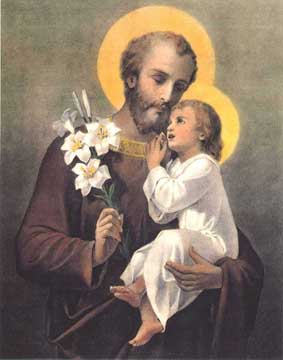Holy Land Populace Supports Pope Benedict
People are thankful for the Holy Father's papacy.
BETHLEHEM — The Holy Land’s Christians, Jews and Muslims don’t often agree on issues, but they are seemingly united in their respect for Pope Benedict XVI.
News of the Pope’s imminent retirement set off a wave of concern about his health, but also accolades for his efforts to promote Middle East peace and to strengthen the small Christian community here.
Many recalled Benedict’s 2009 pilgrimage to Israel and the Palestinian territories and his ongoing involvement in interreligious dialogue.
"Everyone remembers the journey of the Holy Father to the Holy Land in 2009 and to Cyprus in 2010. These were events of strong symbolism for Christians, but also for Jews and Muslims," Archbishop Fouad Twal, the Latin Patriarch of Jerusalem, said in a statement.
Patriarch Twal recalled how Pope Benedict organized and presided over the Middle East Synod held in Rome in 2010, which, for the first time, brought together virtually every bishop in the Middle East, from both the Western and Eastern Churches.
The synod, and the meetings leading up to it, provided a unique opportunity for Middle East Christians to share their hopes, concerns and struggles with the Vatican.
The Patriarch thanked the Pope for "his paternal affection and commitment to peace in the Holy Land" and conveyed the hope that the Virgin Mary will "accompan[y] the Holy Father in his decision to step down and in the rest that awaits him."
Ashekenazi Chief Rabbi of Israel Yona Metzger said through a spokesman that, during Pope Benedict’s reign, "there were the best relations ever between the Church and the Chief Rabbinate" and expressed hope that the "trend will continue."
"I greatly appreciate him for his immense activity to interfaith connection that has contributed greatly to the reduction of anti-Semitism in the world," Rabbi Metzger said.
The chief rabbi added that the Pope "deserves a lot of credit for advancing interreligious links the world over between Judaism, Christianity and Islam."
Israeli President Shimon Peres, a Nobel Peace Prize winner, agreed that, under Pope Benedict’s leadership, the Vatican "has been a clear voice against racism and anti-Semitism" and a "clear voice for peace."
Peres said the "positive dialogue" between the Catholic Church and the Jewish people "is a testament to his belief in dialogue and cooperation."
Gratitude in Bethlehem
In Bethlehem, where municipal workers were finally taking down Christmas decorations, Palestinians thanked the Pope for visiting the city of Christ’s birth in 2009 and for voting for a limited Palestinian state at the United Nations last November.
"He came here and gave a boost to Palestinian Christians," said Khaled Bandak, a Bethlehem-based Christian guide, gazing at groups of pilgrims congregating in Manger Square.
Bandak said he appreciates the financial assistance the Church gives to local Christians, but added that Holy Land Christians want nothing more than to earn their own way.
"We need the economy to grow, and that’s largely dependent on pilgrimages. A good economy will enable us to stay here," Bandak said, referring to the Christian community, which has dwindled to just 2% of the populations of Israel and the West Bank from 25% in 1948.
Bandak said he has "mixed feelings" about Pope Benedict’s resignation.
"We don’t know who will lead us, and, as we know, being pope isn’t an easy job. Hopefully, the cardinals will elect someone who is capable and young."
Seated on a low stool outside his souvenir shop, 75-year-old Michael Qumsiyah praised Pope Benedict "for knowing himself and his limitations."
"Leaders in the Arab world could learn something from the Pope’s actions," said Qumsiyah, who is Christian.
Asked to speculate on whom the next pope might be, Qumsiyah thought it would be "exciting" if the next pope was an American.
"There has never been a pope from the U.S., which has a large number of Catholics. It would be an interesting choice."
Whoever is chosen, he said, "my hope is that he will love the Palestinians. We Christians want to be able to stay here. Our roots are here, but we need help."
Exiting the Church of the Holy Sepulcher, Yasser Abdullah, a Christian from the northern West Bank, expressed the belief that Pope Benedict was sometimes overly diplomatic in his dealings with Israel.
"I hope the next pope will publicly condemn the Israeli occupation more and promote the rights of the Palestinians, Christians and Muslims both," he said.
Muslim Praise
Azhr Haifa, a Palestinian born and raised in Texas, praised the Holy Father for supporting the Palestinian people and for steering the Church in a moral way that Muslims can appreciate.
"For me, a Muslim, I am glad there are still religious leaders like Pope Benedict with conservative views, who promote family values, who care for the poor and work toward peace. We are all under one God."
Haifa, who had traveled from the Ramallah area in the central West Bank to Bethlehem with his family, said the Pope "put the Palestinians on the map" through his advocacy. "I hope the next pope will do the same, and even more."
Rabbi David Rosen, director of the American Jewish Committee’s Department of Interreligious Affairs, told Vatican Radio that Pope Benedict, through his renunciation of anti-Semitism and his interfaith efforts, had been "doing the same things as John Paul II, and even, maybe, in some ways, going beyond them — certainly, in terms of the quantity and maybe even the quality of his own engagement — he was enshrining these actions, almost, in the fabric of the Church."
Said Rosen, "I think we will look back on Pope Benedict XVI’s pontificate as very significant in consolidating the amazing achievements in Catholic-Jewish relations."
Michele Chabin writes from Jerusalem.
- Keywords:
- March 10-23, 2013

















